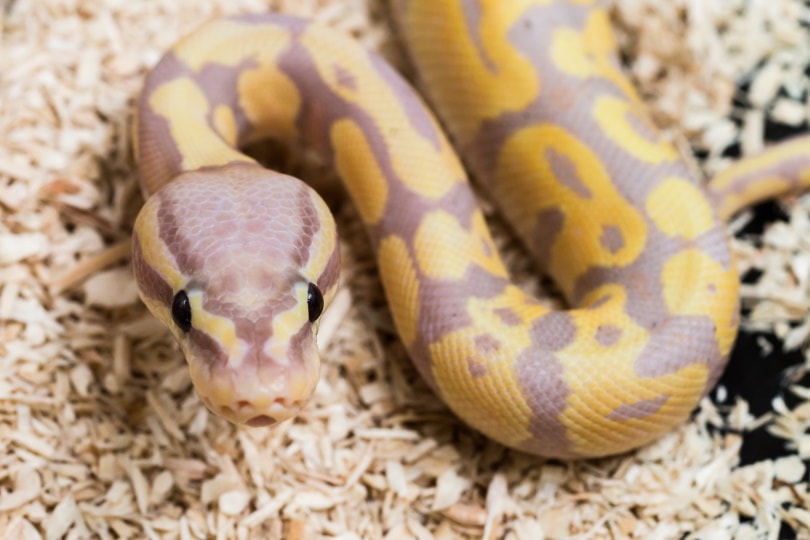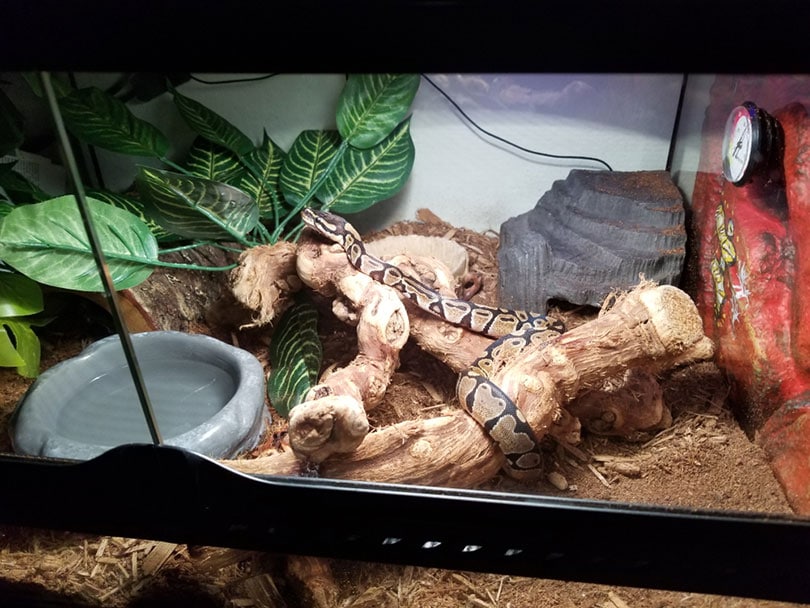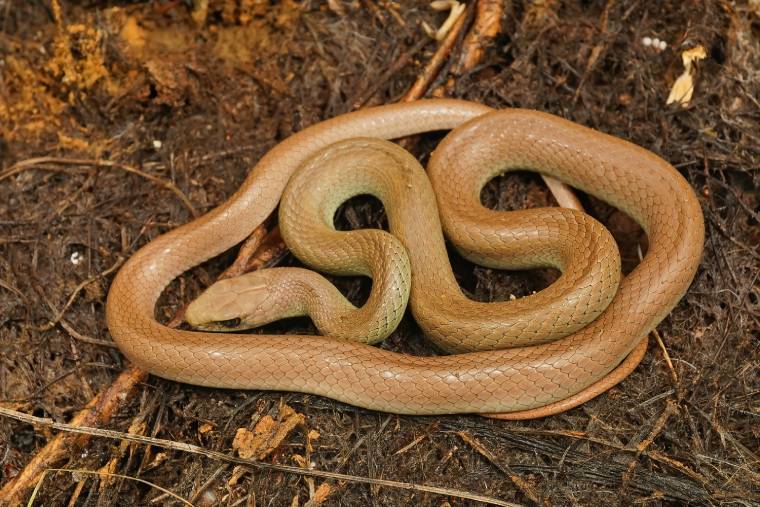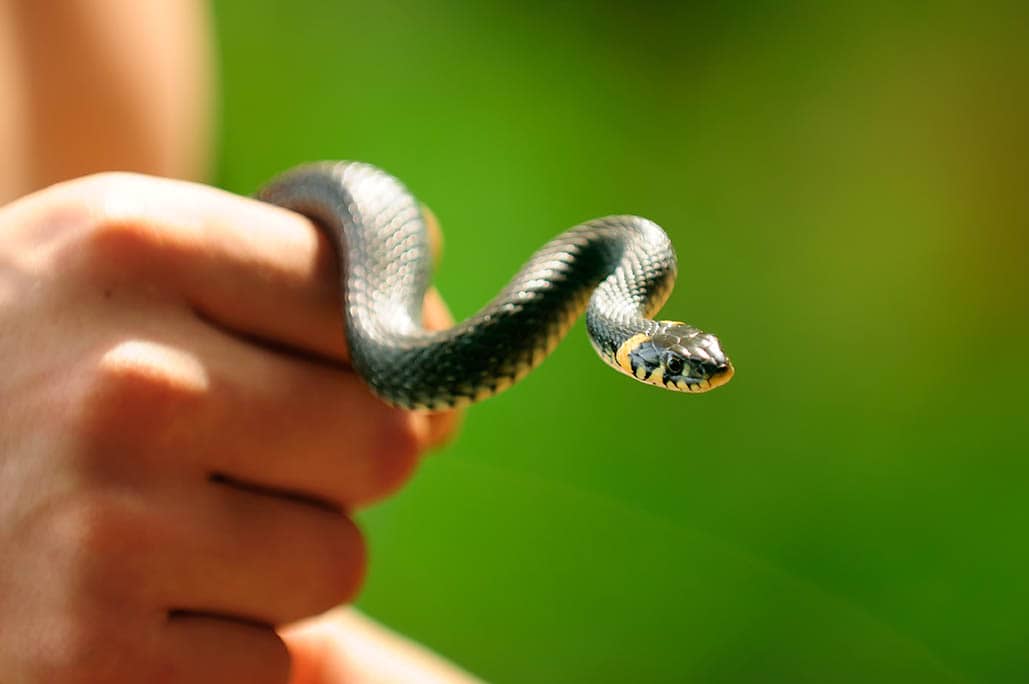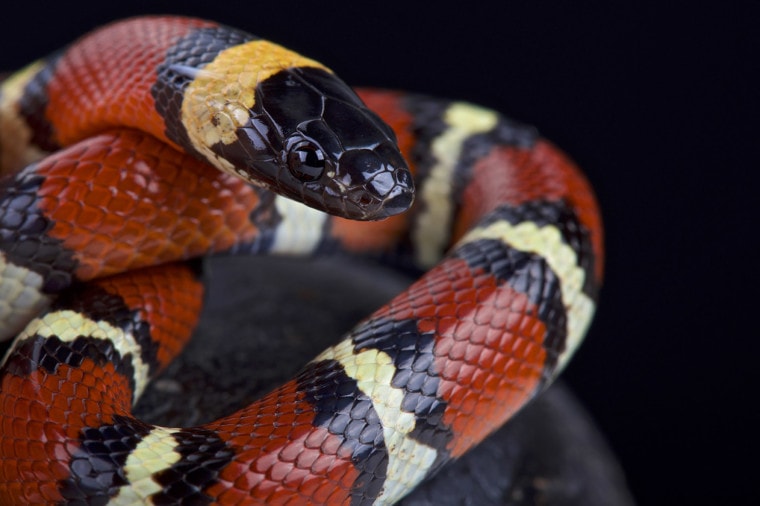
Snakes get rid of their waste similarly to most other reptiles. Once everything has been digested, the waste passes through an opening near the end of their tail, called the cloaca. Both the feces and urates come out in a solid state.
Snakes use their cloaca to defecate, mate, lay eggs, or give birth to live young (depending on the species). It’s multi-purpose!
Snakes also don’t eliminate as often as most animals. Many snakes can go a long time without eating. As you might expect, snakes that don’t eat much usually won’t defecate much either. If there is nothing to digest, there is nothing to come out. In addition, being cold-blooded, their metabolism depends on the ambient temperature, and therefore, they digest food much slower when temperatures are lower.
Do Reptiles Poop?
In general, all reptiles pass feces. However, it doesn’t look exactly like you might expect. Much like birds, all reptiles possess a cloaca, which is a common passageway for feces, urates (their equivalent of urine), and eggs. Snakes that are livebearers, such as the Garter snake, also pass their offspring through the cloaca.
When reptiles poop, they expel everything that’s in their cloaca at once. Unlike mammals, they don’t have a different passageway for their urine and feces.
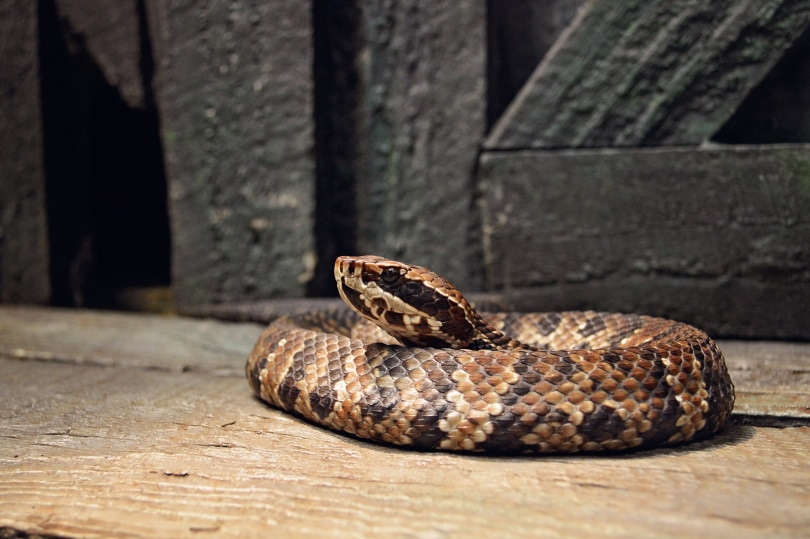
How Often Do Snakes Poop?
It mostly depends on the species and what the snake eats. Feces will be produced after the animal has been digested. How often a snake needs to eat varies, so how often a snake defecates also varies.
Some snakes will need to go shortly after they eat, while others potentially won’t go for months. It also depends on how active the snake is. Those that are housed in warm conditions are generally more active and have a faster metabolism, therefore, will defecate more frequently.
Whatever the snake eats always comes out all at once, and snakes typically don’t eat again until it does. So, how often a snake eats will give you an accurate estimate of the amount of feces that they will leave behind.
Younger snakes tend to eat more frequently than older ones because they have to fund their fast growth. Therefore, they will probably poop more frequently as well.
- Related Read: Do Snakes Fart?
Do Snakes Pee?
Yes and no. They have one opening that they use for everything and all the waste gets passed at the same time. Much of the urates they pass will be a solid as well, so there usually isn’t as much liquid as you’d expect. Therefore, snakes don’t really urinate like mammals do. Snakes also lack a urinary bladder, so they don’t accumulate their “urine” prior to passing it.
The amount of liquid they pass will largely depend on how often your snake drinks water. This varies depending on the species and age of the snake.
If a snake eats often, they may get enough moisture from the animals that they consume. Therefore, much of their liquid waste will be released at the same time as the solid stuff. It may appear that your snake doesn’t urinate at all in these situations.
On the other hand, some snakes go a long time between meals and need to drink plenty of water. These snakes may pass through waste that is just liquid.
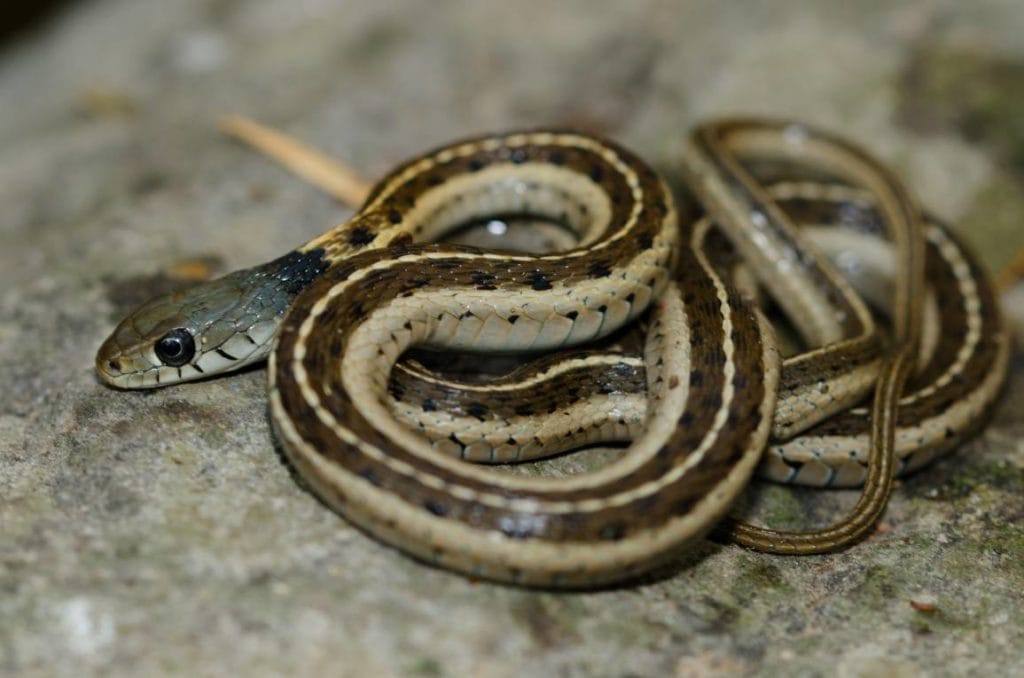
Can Snakes Get Constipated?
Occasionally, yes. This can happen for various reasons.
If a snake’s meal is too large and their temperature is inappropriate, they may be unable to digest it properly. It could get stuck halfway down, which would be similar to constipation. This isn’t exactly the same constipation that mammals experience—it’s more like a blockage.
However, the waste from the animal may also get stuck, which can be similar to constipation.
For whatever reason, the meal could take too long to digest. In some cases, this can make the feces dry and more difficult to pass.
Dehydrated snakes will have similar issues. If the stool isn’t wet enough, they will be unable to pass it.
For wild snakes, all these issues can be potentially fatal. There is no way for the snake to rectify the situation. In many cases, they just have to wait for their body to figure it out, if it can.
However, if the blockage continues, then the snake will be unable to eat and may eventually perish. After all, they can’t absorb any more nutrients if their digestive tract stays full. In some cases though, changes in their environment or rainfall temperature drops and humidity increments can help the snake out. It is also worth noting that in the wild, most snakes are able to regulate their food intake remarkably well.
In captivity, the odds are a bit better. Owners can offer their snake all sorts of treatment. Lukewarm baths often help many snakes, as it helps everything warm up and get moving. Medications are available in some cases.
Impacted eggs and some blockages may require surgery from a qualified vet. However, this option is available only to our captive friends. Those in the wild often aren’t so lucky!
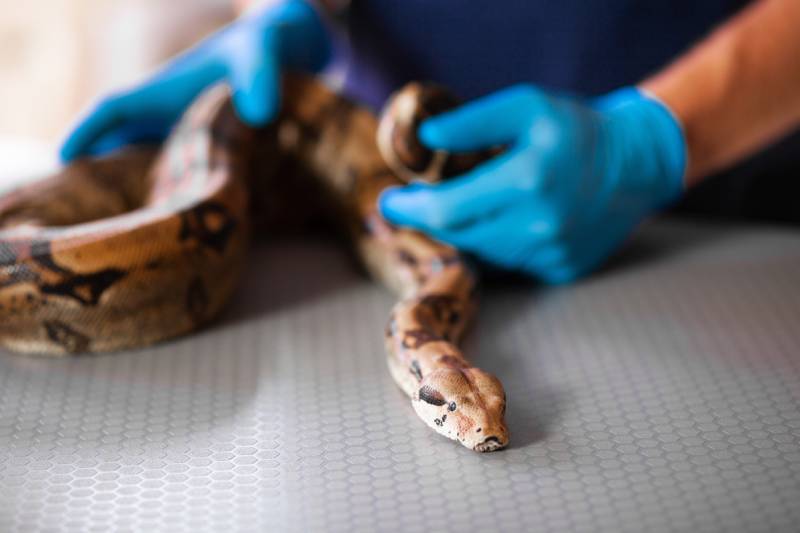
Conclusion
Snakes do poop, though they do it slightly differently than mammals. They have one opening that they use for everything, including poop and pee. Often, all their waste is released at the same time, so it may appear like they don’t urinate.
Snakes poop far less than most other animals. They will pass all of their waste at once, so their regularity often depends on how much they eat. Young snakes usually eat more, so they will often produce waste more often.
There is little reason to worry if your snake hasn’t pooped in a while. This is often normal.
However, constipation is possible. Some snakes end up with a stuck meal in their digestive tract, which may count as either a blockage or constipation. Be sure to keep up with your snake’s bowel movements. If they have a blockage, you’ll want to notice it as quickly as possible.
Featured Image Credit: reptiles4all, Shutterstock


